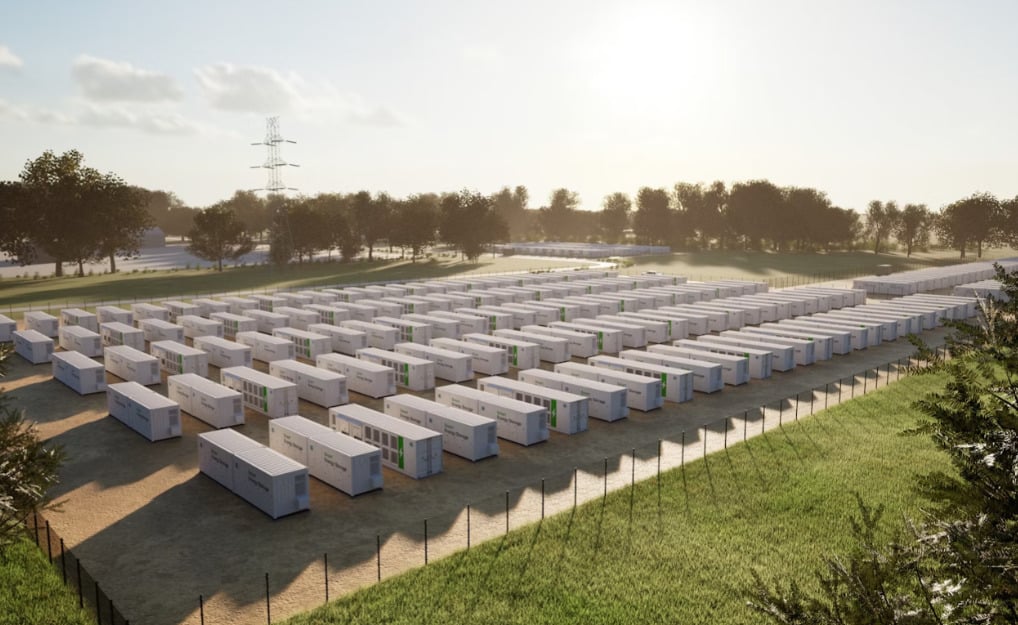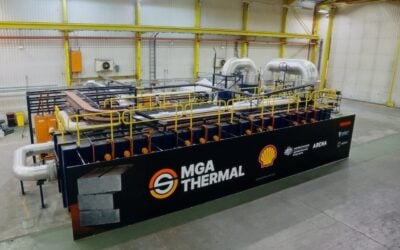
Pacific Green Technologies has applied for approval under the Environment Protection and Biodiversity Conservation (EPBC) Act, for its 1GW/2.5GWh Portland battery energy storage system (BESS) in Victoria, Australia.
The project, first unveiled last year (6 October), was the US-headquartered energy storage developer’s flagship project and marked its “strategic entry” into the Australian market.
Via a local subsidiary, Pacific Green brokered agreements with undisclosed parties to secure land sites to develop the utility-scale BESS asset in Portland, a city in the Australian state of Victoria.
Pacific Green’s Portland BESS will feature multiple 250MW ‘battery parks’ alongside other necessary infrastructure. Once completed, the BESS will be amongst the largest in Australia, trumping Origin Energy’s 2GWh Eraring project in New South Wales and state-owned company Stanwell’s 1.2GWh Stanwell Power Station BESS in Queensland.
Try Premium for just $1
- Full premium access for the first month at only $1
- Converts to an annual rate after 30 days unless cancelled
- Cancel anytime during the trial period
Premium Benefits
- Expert industry analysis and interviews
- Digital access to PV Tech Power journal
- Exclusive event discounts
Or get the full Premium subscription right away
Or continue reading this article for free
The Portland Energy Park will consist of single-story modular units similar in size to a 20-foot shipping container. The energy facilities and associated infrastructure will be located on-site, and the facility will cover approximately 30 hectares of land zoned for industrial use in total.
It is “strategically positioned” within the industrial-zoned area on Madeira Packet Road, Pacific Green says, and is in close proximity to the Portland Aluminium Smelter and the Portland Water Treatment Plant. This will enable the asset to seamlessly co-exist with the existing electrical infrastructure positioned nearby.
Once operational, the Portland BESS will provide critical energy storage and stability for the National Electricity Market (NEM) grid and support the uptake of renewable energy generation projects within the nearby South West Renewable Energy Zone (REZ). Victoria is looking to develop six REZs across the state, which are described as modern-day power stations.
According to Pacific Green’s timeline for the project, construction is scheduled to commence in the Australian winter of 2025, and operations will begin in mid-2027.
Pacific Green secures development consent for 1.5GWh BESS in South Australia
Readers of Energy-Storage.news will be aware that Pacific Green Technologies recently secured planning consent from the South Australian government to develop its 500MW/1.5GWh Limestone Coast Energy Park, the first of its two-strong utility-scale BESS pipeline in Australia.
The Limestone Coast Energy Park assets will comprise 500MW/1.5GWh of BESS, which will be developed and constructed in two phases over a 36-month period. The first phase is anticipated to be operational in the second half of 2026, and construction on the park will begin at the end of this year.
The organisation said the ‘Energy Park’ will store almost 60% of South Australia’s residential solar output for up to four hours.
The two Energy Parks will be the first assets of an 8.5GWh development pipeline that Pacific Green is rolling out across Australia.





